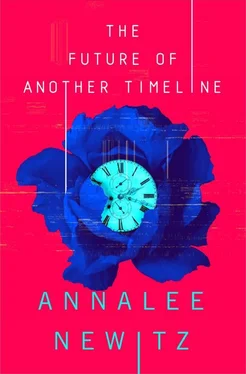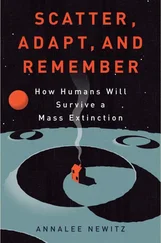I looked at Morehshin, who was grinning fiercely. Maybe, centuries from now, her queens were becoming people.
* * *
Sunday morning’s society pages were full of salacious drawings and exaggerated accounts of the evening. Archy’s “bash” was duly condemned as racy and decadent, but Comstock emerged as the evening’s biggest gossip target. The papers satirized everything about him, from his threadbare suit to his accent. His morals were absurd; they belonged to an era before the invention of electricity. George Bernard Shaw, a snarky British theater critic, made oblique reference to the scandal in a widely republished essay about how “Comstockery” was ruining American culture. Morehshin was excited to see the true slaughter of Comstock’s reputation was under way. Sol and Archy gave everybody big tips, including to the dancers who hadn’t won the prize.
In the light of day, I still felt sure we’d reached a transition point. This wasn’t an “angry mob” protesting Comstock’s moral cleansing campaign. It was New York’s best and richest, simply trying to have a good time. We’d driven a wedge between the Four Hundred and the moralist who depended on them.
Of course, I might never know if I was right about the eventual outcome of last night’s blowup. That would require me to get back to 2022. And I couldn’t do that until Morehshin and I tapped back millions of years to deal with the men who were still trying to rob us of our history.
I realized this might be the last time we would see Aseel, and I was sorry to say goodbye. Hungover but happy, we met in the hotel dining room for a late breakfast of eggs, rolls, and various gelatinous meats beloved in this era. Morehshin poured a small amount of coffee into her cup from the carafe on our table and stared at it.
“You going to drink that?” Aseel was amused.
I tried to explain. “People don’t drink coffee in her time.”
“Some people do.” Morehshin frowned. Then sipped. “Ugh, this is bad. Maybe some rules don’t need breaking.”
We laughed and I noticed that Aseel didn’t seem as angry as she used to. Running a shop suited her, and she was publishing a lot of music that came from traditions outside the usual European oompa crap. “What are your plans for the Independent Music Company?” I asked.
“Sol and I talked last night, after everybody left. We’re making a tidy profit with our sheet music, and he wants me to start organizing more events like this one back in Chicago.” She got a faraway look on her face. “We could bring back some of the Midway dancers, like Salina, and put on shows in the dance hall next door. A bunch of venues are opening up on Wabash.”
“That sounds fantastic! The Algerian Village lives on!”
She nodded. “I got a big raise, too. I can buy a house.”
Morehshin talked around the bacon in her mouth. “That’s good. A house is important. My sisters have a saying: If you have property, you can’t be property. ”
Aseel gave us both a quizzical look. “I’m not sure that’s true, but I definitely feel more secure.”
We talked about where she might move, and how Sol was going to let her take charge of hiring, and then finally it was time for us to go. Aseel took the train back to Chicago while we headed to the pier. We had a long trip ahead.
* * *
When we arrived at Raqmu, the news was waiting for us in tidy piles at the inn in the scholars’ neighborhood. Literati and society types had taken up the “Comstockery” meme with zeal. It came to mean anything unfashionable, addle-brained, or dull. Comstock’s raid had also cost him some very rich patrons, who quietly distanced themselves from his crusade. When he was harassing abortionists, smutty postcard peddlers, and low-class theaters, they considered it their duty to support him. But not when he tried to smear the reputations of Archy and the other lads, who were only having a bit of fun. Comstock’s operation had always been on a shoestring budget, and now he had fewer resources than ever. If he wanted to continue his legal battles over obscene materials, he couldn’t afford to sustain his regular busts in the street.
One of Soph’s friends wrote to say that Comstock’s boys from the Society for the Suppression of Vice had stopped harassing abortionists right after the party. For now, the women of New York and Chicago had precarious access to birth control—as long as they ordered the right euphemisms from the right catalogues, or called on a sympathetic midwife.
Comstock, who once boasted of driving sex educators to suicide and had attracted followers from across the timeline, was losing his grip on America’s britches. His “special agent” position with the Postal Service was only as powerful as the elites allowed it to be. Without help from the Four Hundred and their politicians, he would be relegated to the status of a religious nuisance shouting in the halls outside Congress.
I imagined what Beth’s life would be like if the Comstock Laws really were crumbling. What if getting an abortion was an unremarkable aspect of healthcare for anyone with a uterus? What if she didn’t have to risk arrest for wanting a normal teenage life without the burden of early motherhood? Maybe she wouldn’t need me to help her, but neither would all those other girls who hadn’t been born to a mother like mine.
Of course, the reality would be more complicated than that golden arc I’d imagined when we invoked Lady Asenath’s name. Clever moralists of the future might come up with new legal tricks to invade people’s private lives and control reproduction. As long as we had Machines, no edit was permanent. We would have to stay one step ahead, adding loopholes and footnotes and exemptions to their power.
Los Angeles, Alta California (1994 C.E.)
I logged into my account from the dorm internet kiosk and opened Pine to read my e-mail. There were two messages: one from the campus lawyer, and one from Hamid. Looking around to make sure nobody could see the terminal, I opened Hamid’s right away:
Hi Beth. First e-mail!!! I’m trying to decide whether to see Short Cuts or Cyborg Cop this weekend. If you come along, you can cast the deciding vote! What do you think?—Hamid
My heart surged like a regular organ instead of an alien invader. I replied:
Hi Hamid. Good job flinging electrons. I vote for Cyborg Cop.—Beth
Then I read the e-mail from the lawyer, who said she’d done some research and I could make an appointment any time to discuss it. I tried to focus on my midterm for Anita’s class, but managed little more than a few paragraphs before falling asleep in a tight ball on my bunk.
I saw the lawyer the next day after class.
She patted a folder of papers on her desk. “This is a pretty unusual situation, but we do have something called a dependency override that allows a student under twenty-four to become eligible for financial aid without parental information.”
I nodded. “That sounds good.”
“I’m not going to soft-pedal this, Beth. It’s a difficult process, and it’s reserved for pretty dire circumstances. But I got the feeling, based on our previous conversation, that you are… estranged from your parents?”
It felt like somebody had punched me in the throat. “I don’t… I mean, I don’t know what that means.”
“Are your parents paying for your college now?”
“Yes, but I want them to stop.”
The lawyer gave me a hard look. “I need you to be honest with me, Beth. You told me before that your father is mentally ill. Your words. Is there some reason your parents can’t take care of you?”
I didn’t know what to say and I stared at my hands, digging into the wooden chair.
Читать дальше








![Аннали Ньюиц - Автономность [litres]](/books/424681/annali-nyuic-avtonomnost-litres-thumb.webp)



